Prepare
Don’t be surprised – be prepared. Click below to learn how to prepare for your upcoming procedure.
Location
Located in Los Angeles, California – right in your neighborhood. Get directions by clicking below.
Forms
Looking for patient forms? Our online patient portal is available to you 24 hours a day, seven days a week.
Your Ideal Gastroenterologist
Located in Los Angeles, California
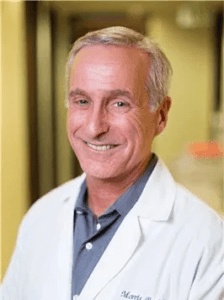 Dr. Morris B. Silver practices Gastroenterology in Beverly Hills, California. Board certified since 1987, Dr. Silver assists patients suffering from diarrhea, constipation, abdominal pain, and rectal bleeding, as well as Inflammatory Bowel Disease and GERD. Services offered by Dr. Silver include colonoscopy and upper endoscopy. Dr. Silver earned his medical degree at the State University of N.Y. in Brooklyn, New York in 1984. He completed his residency at the Montefiore Hospital and Medical Center in the Bronx, NY in 1987. Dr. Silver went on to become a fellow in gastroenterology through a program at New York Medical College.
Dr. Morris B. Silver practices Gastroenterology in Beverly Hills, California. Board certified since 1987, Dr. Silver assists patients suffering from diarrhea, constipation, abdominal pain, and rectal bleeding, as well as Inflammatory Bowel Disease and GERD. Services offered by Dr. Silver include colonoscopy and upper endoscopy. Dr. Silver earned his medical degree at the State University of N.Y. in Brooklyn, New York in 1984. He completed his residency at the Montefiore Hospital and Medical Center in the Bronx, NY in 1987. Dr. Silver went on to become a fellow in gastroenterology through a program at New York Medical College.
After practicing privately as a Gastroenterologist in New York from 1989 to 1990, Dr. Silver made the move to the West Coast. He has been practicing as a Gastroenterologist in California since 1990. During his career as a physician in California, Dr. Silver has worked in Orange County, Los Angeles, and Beverly Hills. When he is not in the office, he stays active with walking, exercising, and playing sports. He also loves spending time with his grandchildren.
SOME OF THE PRIMARY SERVICES WE PROVIDE
Our Focus is on The Patient
- Abdominal Pain
- Inflammatory Bowel Disease
- Colonoscopy
- Constipation
- Diarrhea
- Rectal Bleeding
- Upper Endoscopy
- Gastroesophageal Reflux Disease (GERD)
- Food Allergies Testing

Abdominal Care.
Abdominal pain is a common ailment affecting most adults in their lifetime. However, when you have abdominal pain that is severe, recurring, or associated with other conditions, this can require medical attention. Discover how you can benefit from care by your gastroenterologist, Dr. Morris B. Silver, practicing in the Beverly Hills area of Los Angeles, CA.
How Do I Know When To See A Gastroenterologist For My Abdominal Pain?
If you have severe abdominal pain to the point where you cannot move, this is a definite sign that something is significantly wrong. Other indicators that you should see a gastroenterologist are when the stomach pain is accompanied by a fever or vomiting. If your abdominal pain is associated with bloody stools, this could be a sign of inflammation or infection in the digestive tract. Seek medical attention immediately with Dr. Silver’s office. Additionally, if your abdomen is swollen or tender or you have unexplained weight loss or yellow skin, you may be suffering from an internal condition that requires medical help.
What Are Medical Conditions Associated With Abdominal Pain?
One of the main reasons why you need to see Dr. Silver when you are suffering from abdominal pain is because it could be a symptom of other conditions. Inflammation of the fallopian tubes, abdominal lining, heart tissue, lungs, small intestine, gallbladder, and bladder can all lead to acute stomach pain. Other conditions that show signs of abdominal pain include an abdominal aortic aneurysm, heart attack, pneumonia, kidney infection, and stomach flu. The best way to determine what is causing your stomach pain is to see your doctor if the pain becomes acute. Dr. Silver can diagnose your abdominal pain effectively and treat associated medical conditions.
What If My Stomach Pain Gets Worse Over Time?
This is known as progressive stomach pain and it is associated with serious medical conditions. For example, if you have cancer including gallbladder cancer, pancreatic cancer, or liver cancer, this will cause progressive abdominal pain. You can also have this condition if you are suffering from an enlarged spleen, lead poisoning, uremia, or Non-Hodgkin’s lymphoma. All of these medical emergencies require care immediately to prevent life-threatening situations. If you are suffering from progressive stomach pain without a diagnosis of any associated medical condition, contact Dr. Silver at his Beverly Hills office. He will be able to diagnose your condition and treat your severe stomach pain.
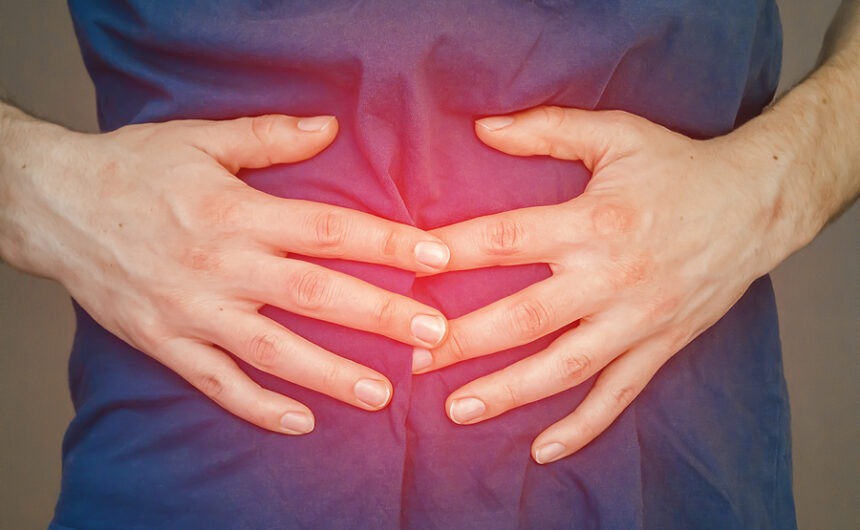
Inflammatory Bowel Disease.
Inflammatory bowel disease or IBD includes several medical conditions within the small intestine and colon. If you are suffering from IBD and live near the Beverly Hills areas contact leading gastroenterologist, Dr. Morris B. Silver. He will assist you with diagnosing, treating, and managing inflammatory bowel disease.
Inflammatory bowel disease includes inflammation along the entire digestive tract. This condition is most commonly identified as Crohn’s disease and ulcerative colitis. Crohn’s disease is caused by inflammation of the digestive tract lining. This inflammation typically spreads into the large and small intestine. Ulcerative colitis involves ulcers in the large intestine and rectum. These conditions cause severe pain, diarrhea, fatigue, and weight loss. Without treatment from a gastroenterologist, your situation can become life-threatening.
Dr. Silver will first conduct a series of diagnostic tests, such as a colonoscopy, to determine the extent of your IBD. From there he can decide on the best route of care. The overarching goal is to reduce the inflammation of your digestive tract. This may involve changing your diet and taking anti-inflammatory drugs, antibiotics, immune system suppressors, and nutritional supplements. In more severe cases surgery for inflammatory bowel disease is a temporary solution to help control inflammation.
If you want to help reduce the inflammation within your digestive tract, there are steps you can take prior to visiting with Dr. Silver. Start by addressing your diet. Even though diet is not the cause of IBD, certain foods can cause irritation and painful flare-ups. Limit fatty foods, fiber-filled foods, and dairy products as each of these categories are detrimental to those with inflammatory bowel disease. You can also help your condition by eating several small meals rather than three main meals. Drink plenty of water, and avoid caffeine and alcohol. Talk to Dr. Silver about taking vitamins and supplements to help replenish those minerals and nutrients lost to chronic diarrhea and your restricted diet. You can also alleviate IBD by quitting smoking and reducing stress.
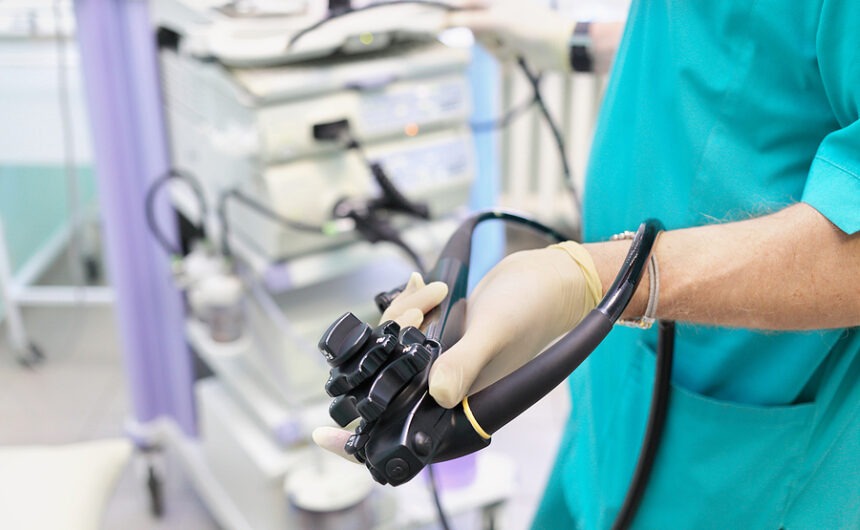
Colonoscopy.
Gastroenterologist, Dr. Morris B. Silver, has leading GI practices in the Beverly Hills, California area. Dr. Silver performs colonoscopies at his medical office, where he examines the colon for any abnormalities.
When you visit Dr. Silver for a colonoscopy, you are tested for abnormalities in your colon. The test is completed using a colonoscope, which is a thin tube that is inserted into your large intestine, also known as your colon, as well as your rectum. This tube has a camera on the end so that Dr. Silver can take a video recording of the colon. To prepare for a colonoscopy you will need to empty your colon prior to the procedure. Dr. Silver’s office will provide you with detailed instructions on how to do this. This will likely entail following a special diet of clear liquids the day before you go for the colonoscopy. You may need to take a laxative or use an enema prior to the test.
The most common reason for getting a colonoscopy is to test for internal concerns. For example, if you are dealing with abdominal pain, intestinal complaints, or rectal bleeding, a colonoscopy can help Dr. Silver locate the source of the problem. If you are a healthy adult, the National Institute of Diabetes and Digestive and Kidney Diseases recommends getting a colonoscopy when you turn 50. For adults who are at risk for colorectal cancer, you will need to consult with Dr. Silver for more frequent colonoscopies.
A colonoscopy is not a surgical procedure. However, it is completed either as an outpatient procedure or in a hospital depending on your personal health history. When you get a colonoscopy you are given intravenous sedatives, pain medication, or anesthesia to help you relax. The procedure takes anywhere from 30 to 60 minutes. Afterward, you will need someone to drive you home due to the effects of the intravenous medication. You’ll be able to receive some results from the procedure immediately, while biopsy results will take a few days.

Constipation.
If you are suffering from constipation, Dr. Morris B. Silver is here to assist you at his offices in Beverly Hills, California. As a leading gastroenterologist in Los Angeles, Dr. Silver has worked with patients suffering from various stages of constipation for more than 25 years. Learn more about when you should seek medical attention for this digestive disease.
If you are constipated you will experience fewer bowel movements than normal. Your bowel movements are dependent on your diet, lifestyle, age, and health. Therefore there isn’t a set number of bowel movements everyone should have per day. However, if you notice you are having fewer bowel movements than usual, this is a sign of constipation. Also if you have not had a bowel movement in more than three days, this indicates an issue. Other symptoms of constipation include a swollen stomach, hard stools, difficulties having bowel movements, and throwing up. If you have signs of constipation this can be an indicator of more serious health conditions, which require the attention of a medical doctor.
- Eating too much dairy
- Not drinking enough water, this can cause constipation.
- Taking excessive amounts of antacids or laxatives
- Medications including iron pills and narcotic pain meds
- Other causes may include irritable bowel syndrome, colon cancer, Parkinson’s disease, pregnancy, or hypothyroidism. As there are so many reasons you are constipated, it is vital to see a gastroenterologist to diagnose your constipation if it becomes an issue for you.
As a gastroenterologist, Dr. Silver commonly works with adults who suffer from constipation. His practice involves using diagnostic imagery including colonoscopies and upper endoscopies to get to the source of your internal disorders. This ensures that you will avoid the often ill effects of self-medicating your constipation. By going to see Dr. Silver you can get medically approved relief for your constipation that is safe and effective for your particular condition.
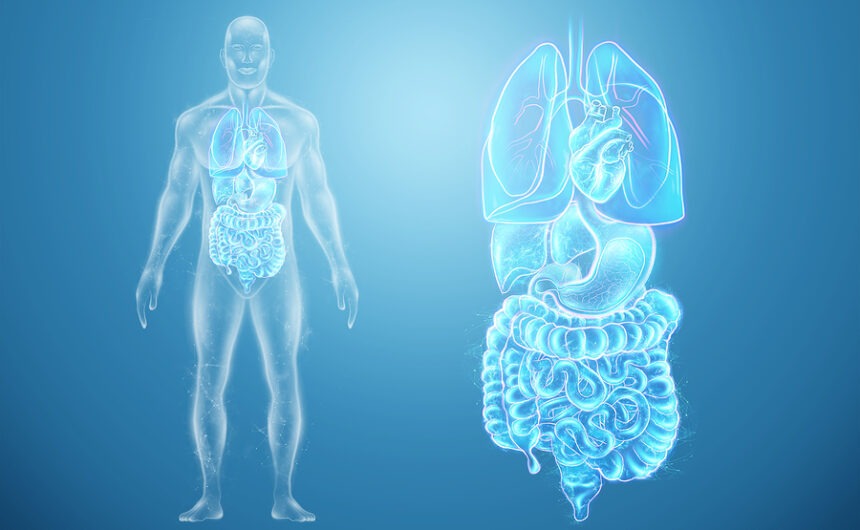
Diarrhea.
If you are suffering from diarrhea this could be a sign of a more serious health problem. Dr. Morris B. Silver, located in Beverly Hills, CA, offers diagnosis and treatment for diarrhea. Find out when you should seek medical care for this condition so you can avoid long-term damage due to acute or chronic diarrhea.
Diarrhea, which includes more frequent bowel movements that are watery and loose, can be a sign of more serious medical issues. For diarrhea that lasts for up to two weeks, this is known as acute diarrhea. It is commonly caused by an infection either due to a virus, bacteria, or parasite. These issues need to be treated by a medical professional using antibiotics or antiviral medications in order for your acute diarrhea to be successfully treated. If you have chronic diarrhea, which lasts for more than four weeks, this is cause to see your gastroenterologist.
Depending on whether you have acute diarrhea or chronic diarrhea, the causes are extensive. With acute diarrhea, this can be caused by less serious issues including traveler’s diarrhea, artificial sweeteners, or lactose intolerance. By changing your diet, i.e. returning to your regular foods after traveling or cutting out artificial sweeteners and dairy, you can remedy acute diarrhea. Other causes of acute diarrhea including E. coli, Salmonella infection, and norovirus infection can be treated with medical care by Dr. Silver. If you are suffering from acute or chronic diarrhea, schedule an appointment with gastroenterologist Dr. Silver for treatment. He will diagnose your diarrhea after examining and testing for possible gastroenterological conditions for a full-scope level of care for your condition.
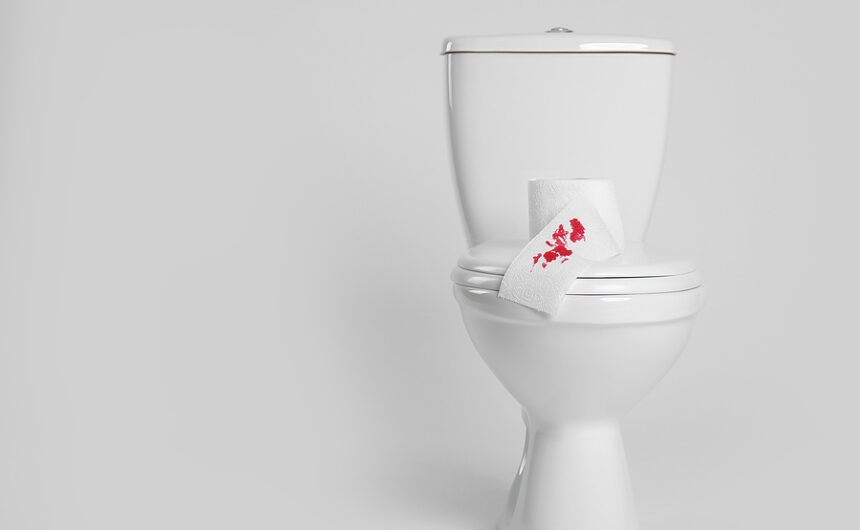
Rectal Bleeding.
Rectal bleeding is an indicator of another more pressing medical condition, such as constipation or ulcerative colitis. Seek the aid of gastroenterologist, Dr. Morris B. Silver, serving the Beverly Hills, California area. Dr. Silver is also an internist who is highly experienced with diagnosing the cause of rectal bleeding.
If you notice blood on your used toilet paper or in the toilet water, this is likely rectal bleeding. The blood will appear in any tinge of red from bright red to nearly black red. Rectal bleeding is caused by blood that comes out of your rectum. It comes from the lower colon or rectum, which includes the final few inches of the large intestine. If you are experiencing rectal bleeding, you should know when to see Dr. Silver. If the rectal bleeding is associated with dizziness, confusion, blurred vision, nausea, fainting, or clammy skin, this is a combination that is very concerning. Other problematic forms of rectal bleeding include a heavy flow of blood, anal pain, or severe stomach cramping. Contact Dr. Silver immediately or call 911 for emergency care if you are suffering from any of these symptoms along with rectal bleeding.
If you have rectal bleeding without any other noticeable symptoms as noted previously, you want to take note of the frequency of the bleeding. If you have this condition for more than two days, contact Dr. Silver for an appointment. For most adults over 40, rectal bleeding is commonly caused by constipation. You can get a colonoscopy at Dr. Silver’s offices in Garden Grove or Beverly Hills to ensure that there aren’t any additional conditions causing the bleeding.
Chronic constipation and hard stools are the leading causes of rectal bleeding. However, you can also suffer from this condition if you have an anal fissure or hemorrhoids. Other less common reasons for rectal bleeding include inflammation in the colon or gallbladder or inflammatory bowel disease. For example, if you have ulcerative colitis caused by IBD this can lead to rectal bleeding. Other causes include anal cancer and colon cancer, as well as radiation therapy to treat cancers.
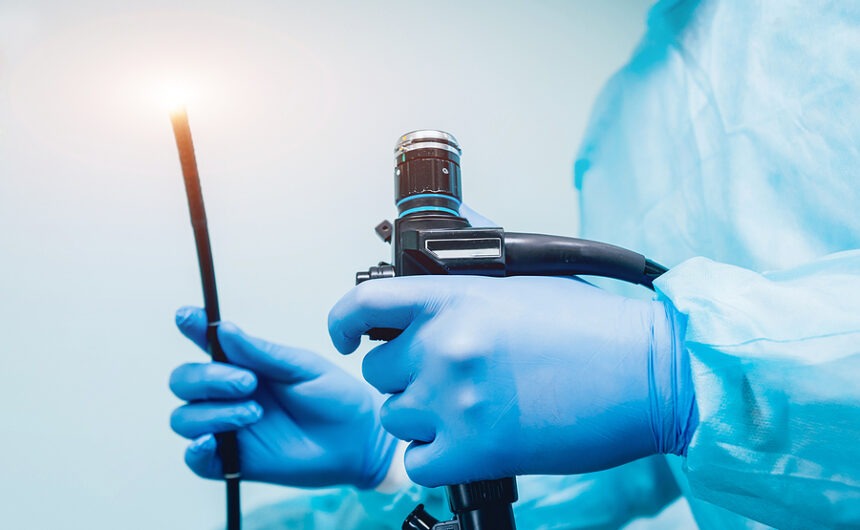
Upper Endoscopy.
Dr. Morris B. Silver of Beverly Hills, CA provides upper endoscopies as part of his gastroenterology practice. Also known as an upper GI endoscopy, this procedure allows Dr. Silver to explore inside the upper GI tract. Discover why this procedure is beneficial and what to expect during an upper endoscopy.
An upper endoscopy is a medical test involving a thin, flexible tube affixed with a tiny video camera. This tube is used to take internal images of the lining of your upper GI tract. Dr. Silver performs an upper endoscopy to help patients who are suffering from upper GI conditions, such as pain, problems swallowing, and persistent heartburn. He also uses an upper endoscopy to determine if you have certain diseases including ulcers, celiac disease, cancer, or GERD. This test is also used to identify reasons for abnormal lab tests associated with nutritional deficiencies and anemia.
When you go to your gastroenterologist for upper endoscopy, expect a relatively simple procedure. Dr. Silver will complete the upper GI endoscopy in either in his outpatient center or a hospital. This depends on whether he will conduct biopsies, treatments, or other specialized procedures. For most patients, the procedure takes about 30 minutes. If you are given intravenous sedatives to help you relax, you will need to remain on site for up to two hours until the sedation medication wears off. During the procedure, you will lie on your side and Dr. Silver will insert the endoscope into your esophagus and down into your stomach. A pump is used to inflate the passageway to make it easier for Dr. Silver to see inside your upper GI tract. After the procedure, you may have some bloating due to the air or a sore throat from the endoscope.
Yes, Dr. Silver is able to use the upper endoscopy procedure to remove objects, such as food or indigestible material, from the upper GI tract. It is also a useful procedure for treating many conditions including bleeding ulcers. Dr. Silver may also use the procedure to dilate strictures, which cause the throat to become too narrow so it is difficult to swallow. Using an upper endoscopy for these outpatient procedures allows you to forgo invasive surgery for a speedy recovery.
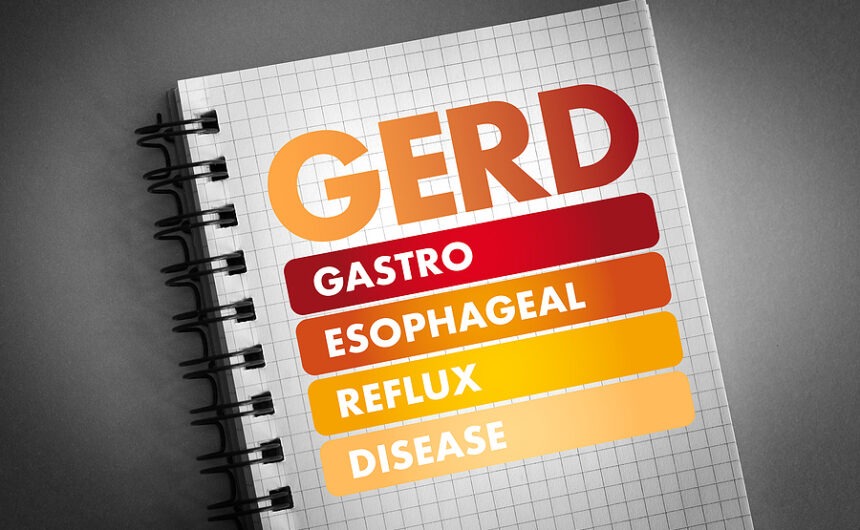
Gastroesophageal Reflux Disease (GERD).
GERD, or gastroesophageal reflux disease, affects more than 3 million new adults in the US each year. Associated with acid reflux, GERD can be successfully treated by a gastroenterologist. At the Beverly Hills office, Dr. Morris B. Silver, will provide a clinical diagnosis of your GERD symptoms along with an effective medical treatment plan.
Gastroesophageal reflux disease, or GERD, is a chronic disease affecting the muscles connecting the esophagus and stomach. The cause of GERG is stomach bile or acid that travels back up into this area of the food pipe. When this happens, it causes heartburn or acid indigestion. Having heartburn on occasion doesn’t constitute GERD. However, if you suffer from this condition more than twice weekly on a regular basis, you likely suffer from GERD. Additionally, if you have acid reflux that is debilitating or causing notable damage to your esophagus, this is likely GERD.
If you are suffering from heartburn accompanied by a sour taste in your mouth, this is a common sign of GERD. Another common symptom associated with gastroesophageal reflux disease is acid reflux. Acid reflux is a regurgitation of stomach bile or food that makes its way back up the food pipe. If you have GERD you may have trouble swallowing, suffer from a sore throat, or have a dry cough. These symptoms can be treated with a visit to Dr. Silver. If you are having more serious symptoms such as severe chest pain that you think is caused by GERD, get help immediately. This could be a heart attack.
When you visit with Dr. Silver he will begin with a thorough medical examination. This may include an upper endoscopy, during which he will insert a thin tube with a video camera into your esophagus and into your stomach. By diagnosing your condition using endoscopy, Dr. Silver can provide you with the most effective treatment for GERD. This may include medications to control heartburn and to strengthen the muscle in the esophagus associated with this condition. You may need to have surgery to repair this muscle if you do not respond well to medication.

Food Allergies Testing.
If you think you may be dealing with food allergies, give our team a call. We can perform testing to see if you are allergic to any foods and if so, which ones.




